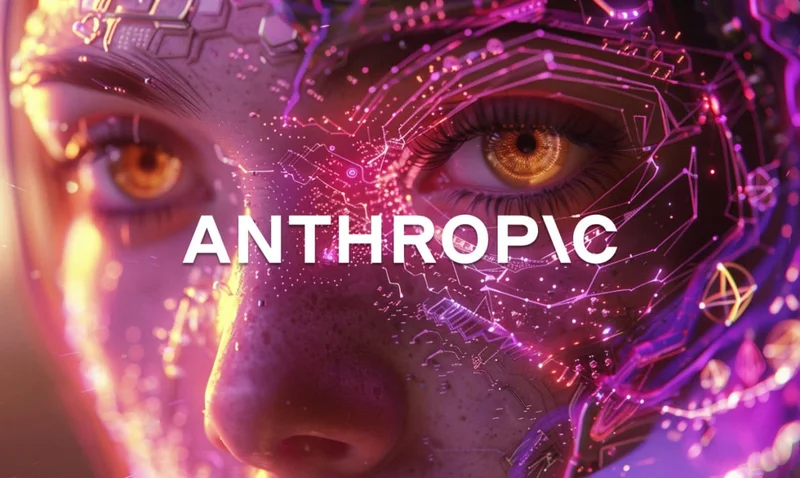I’ve been looking at a peculiar error message on and off for a week. "A required part of this site couldn’t load." It’s a generic, frustratingly vague browser error. It could be anything: a network issue, an ad blocker, a bit of broken code. The site simply can’t render a critical component, and so the whole thing fails.
This, I’ve come to realize, is the perfect metaphor for the current state of the generative AI industry. On the surface, the page is loading a spectacular narrative of boundless optimism and collaborative spirit. But a required component—the one labeled “Skepticism & Competition”—has failed to load. And its absence is making the entire picture feel unstable, almost unreal.
There’s a strange consensus taking hold in Silicon Valley, an environment historically fueled by gossip, sharp elbows, and the gladiatorial destruction of competitors. Suddenly, in the AI arena, everyone is friends. Young founders, we’re told, are too idealistic for the old rivalries. They genuinely believe they are building a better future, and any negativity is simply bad form.
I don’t buy it. When I see universal agreement in a high-stakes market, my first instinct isn't to admire the harmony. It's to check for a structural problem. This isn't a campfire singalong; it's the most capital-intensive, winner-take-all technological race since the dawn of the internet. The absence of public friction isn’t a feature; it’s a bug in the system.
The Gravity Well of the Foundation Models
Let’s be clear about the physics of this new universe. A handful of companies—OpenAI, Anthropic, Google—have built the equivalent of supermassive black holes. Their large language models are the gravitational centers around which the entire startup ecosystem is forced to orbit. These aren't just platforms; they are the new operating systems, the bedrock on which thousands of smaller, more specialized applications are being built.

This creates a power dynamic that is anything but collaborative. The startups are like tiny moons, utterly dependent on the stability and benevolence of the gas giant they circle. They need API access, favorable pricing, and the implicit promise that the giant won’t suddenly roll out a new feature that makes their entire business redundant overnight. Can a moon really afford to criticize its planet? Can it risk being flung out of orbit into the cold, empty space of irrelevance?
The public niceness, then, starts to look less like idealism and more like a survival strategy. It’s a calculated deference. You don’t badmouth the company that provides the very oxygen your product breathes. I've looked at hundreds of market cycles, and this level of public sycophancy from startups towards their core infrastructure providers is, to put it mildly, an outlier. The current narrative suggests this is a cultural shift, but the numbers point to a structural dependency. Is it possible that the "frenemy" isn't dead, but has simply been suppressed by a force so powerful that open dissent is a form of commercial suicide?
The Missing Data Point
When you analyze a market, you look for signals in the noise. You track funding rounds, user growth, and profit margins. In the generative AI space, VC investment is up around 500%—to be more exact, 487% year-over-year in the last reporting period. But the most telling data point right now might be the one that’s missing: honest, public criticism. The silence is the signal.
Think of it as an ecosystem where all the prey animals have publicly declared their admiration for the apex predators. It’s unnatural. The cost of training a next-generation foundation model is astronomical (estimates now comfortably exceed $1 billion), creating a moat that is effectively uncrossable for a new entrant. This isn't a level playing field; it’s a tiered system where a few entities control the fundamental resource—computational power and the models it produces.
The entrepreneurs building on these platforms aren’t naive. They are acutely aware that the platform could pivot and consume their entire market with a single software update. This is the dynamic at the heart of OpenAI and Anthropic v app developers: tech’s Cronos syndrome: the fear that the parent company will devour its children. So, what do they do? They praise the parent. They talk about the shared mission. They frame their dependency as a partnership. It’s a brilliant, if perhaps unconscious, public relations strategy to maintain a fragile existence. But what happens when the economic interests of the platform and the application layer inevitably diverge? What does this forced peace look like when the first real market contraction hits?
A Calculated Silence
My analysis suggests this isn't a story about a new, kinder generation of founders. It's a story about power. The pervasive, almost cloying optimism in the AI startup scene is not an indicator of a healthy market. It's an artifact of extreme market concentration. The lack of open dissent and rivalry is a direct measure of the gravitational pull exerted by the foundation model companies. Everyone is being nice because they have no other choice. That "required part" that failed to load—the critical, competitive, and skeptical voice—hasn't vanished. It’s been suppressed by the sheer physics of the new economy. And in any system, suppressed energy eventually finds a way out.

